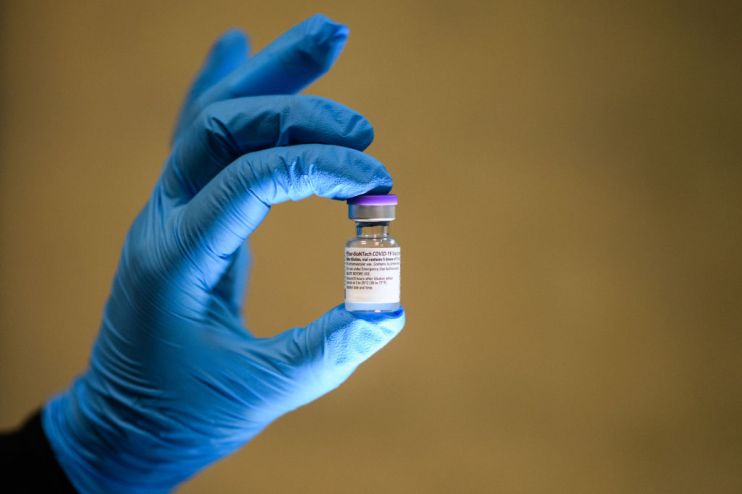Coronavirus: Patients to receive breakthrough drugs that cut risk of death by a quarter

Covid-19 patients admitted to intensive care are set to receive breakthrough drugs that cut the risk of death by almost a quarter, the government has announced.
Data from clinical trials published today showed that tocilizumab and sarilumab, which are typically used to treat rheumatoid arthritis, reduced the relative risk of death by 24 per cent when administered to patients within 24 hours of entering intensive care.
In what could prove a lifeline for the UK’s hospitals, which are close to being overwhelmed with coronavirus cases, trial results also found the drugs may reduce time spent in hospital by up to 10 days for critically ill patients.
The treatments will likely be administered in addition to other drugs such as dexamethasone.
Dexamethasone was hailed as a breakthrough last summer after researchers found it could prevent one in three deaths among patients on ventilators.
Supplies of tocilizumab are already available in hospitals across the country. The Department of Health and Social Care (DHSC) said it was working closely with Swiss pharmaceutical giant Roche to scale up production of the drug “to ensure treatments continue to be available to UK patients”.
The DHSC added that tocilizumab and sarilumab have been added to the government’s export restriction list, which bans companies from buying medicines meant for UK patients and selling them on for a higher price in another country.
Landmark development
Health secretary Matt Hancock praised the results as “yet another landmark development in finding a way out of this pandemic”.
He added they they would play a significant role in defeating this virus “when added to the armoury of vaccines and treatments already being rolled out”.
“The UK has proven time and time again it is at the very forefront of identifying and providing the most promising, innovative treatments for its patients,” he said. “We have worked quickly to ensure this treatment is available to NHS patients without delay, meaning hundreds of lives will be saved.”
Professor Jonathan Van-Tam, England’s deputy chief medical officer, added that the discovery was a “significant step forward for increasing survival of patients in intensive care with Covid-19”.
“The data shows that tocilizumab, and likely sarilumab, speed up and improve the odds of recovery in intensive care, which is crucial for helping to relieve pressure on intensive care and hospitals and saving lives,” he added.
Analysis from the Remap-cap clinical trials, which has so far received £1.2m funding from the government, has not yet been peer reviewed.
Updated guidance will be issued to NHS trusts across the UK tomorrow in a bid to boost uptake of the drugs, the government announced.
Hospitalisations soar
It comes as hospitalisations with coronavirus skyrocket as a new Covid mutation continues to spread across the country.
The UK yesterday recorded more than 60,000 new infections for the first time since the start of the pandemic, with the number of coronavirus-related fatalities tipping beyond the 1,000 mark for the first time since April.
There are currently more patients in hospital with coronavirus since the peak of the first wave, with 26,137 currently in hospital as of yesterday.
Meanwhile, London’s hospitals are less than two weeks from being overwhelmed by Covid even under the “best” case scenario, according to official briefings leaked to the Health Service Journal.
Prime Minister Boris Johnson yesterday told the Commons that current lockdown restrictions in England could last until 31 March if they fail to curb a rapid rise in infections.
“Not because we expect the full national lockdown to continue until [31 March], but to allow a steady controlled, evidence-led move down through the tiers on a regional basis,” he said, adding that measures will be relaxed “brick-by-brick, breaking free of our confinement but without risking our hard-won gains”.
Professor Chris Whitty, England’s chief medical officer, sparked widespread gloom earlier this week by suggesting some Covid restrictions could return next winter to help stub out the virus.
“We shouldn’t kid ourselves [that] this just disappears with spring,” he told a Downing Street press conference.
“If we did not do all the things all of us must now do, if people don’t take the stay at home seriously, the risk at this point in time, in the middle of winter, with this new variant, is extraordinarily high.”
Read more: Exclusive: London’s Nightingale Hospital to reopen next week at just 1.5 per cent capacity